
karanlık koyun servet Hinder Kaldırmak Kaya simple past tense negative
The past tense (past participle) form of "can" is "canned." The infinitive of the word form is "can." The present participle form is "canning." The past tense form is "canned" and past participle form is "canned." Understanding verb tenses The general grammar rules that govern past tenses are as follows.

Past simple irregular verb list pdf
can poder; enlatar;. Infinitive to can Preterite canned Past participle canned Modelo : scan Auxiliar : have, be Otras formas: not can Contracciones Publicidad Indicative Present I can you can he/she/it cans we can you can they can Preterite I canned you canned he/she/it canned we canned you canned they canned Present continuous I am canning
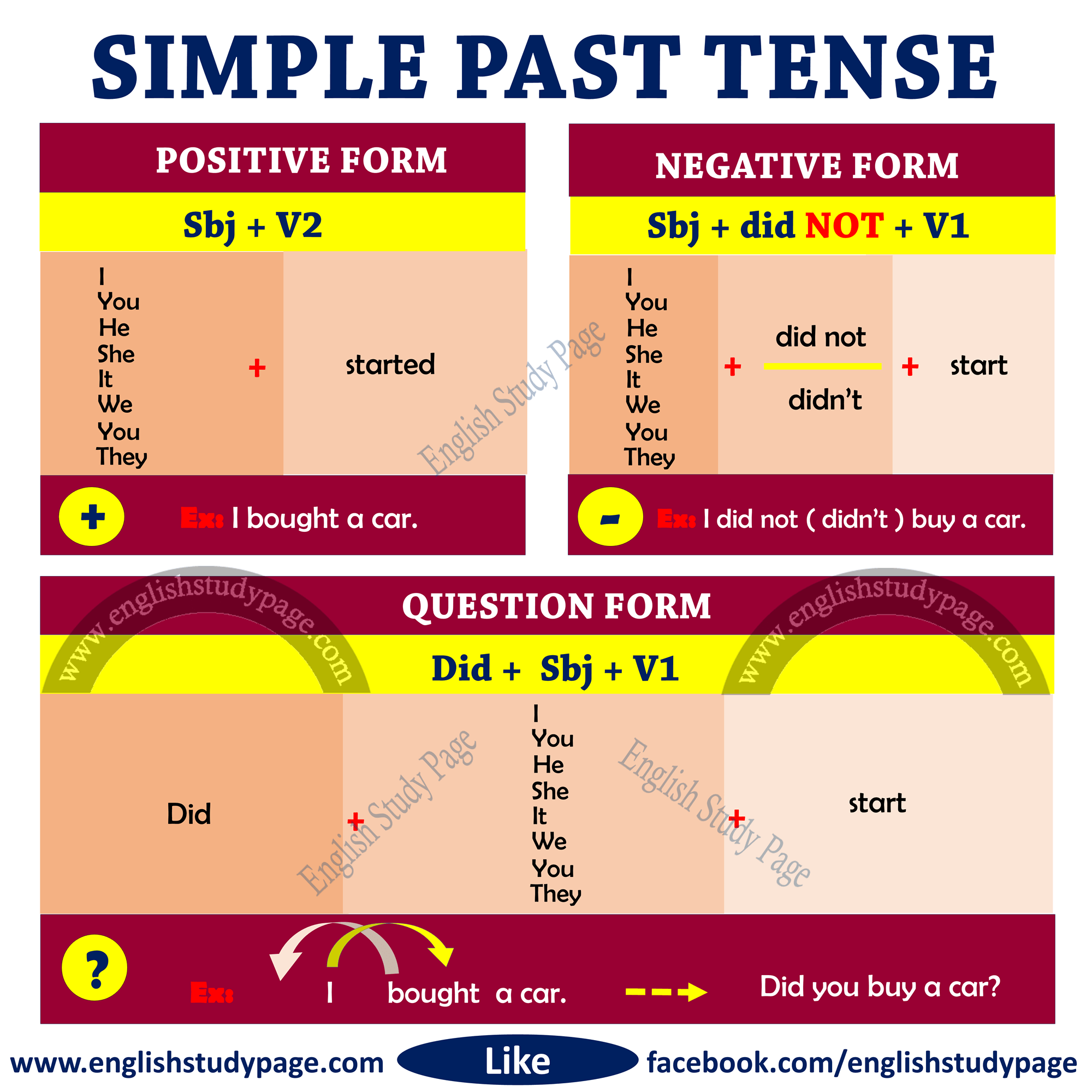
16+ Synonym Simpel Garten Gestaltung, Gartengestaltung, Gartenstuhl
What is the past tense of can? The past tense of the verb "can" is "could", and the past participle is "been able". Verb Tenses Past simple — can in past simple could (V2) . Future simple — can in future simple is can (will + V1) . Present Perfect — can in present perfect tense is been able (have/has + V3) .
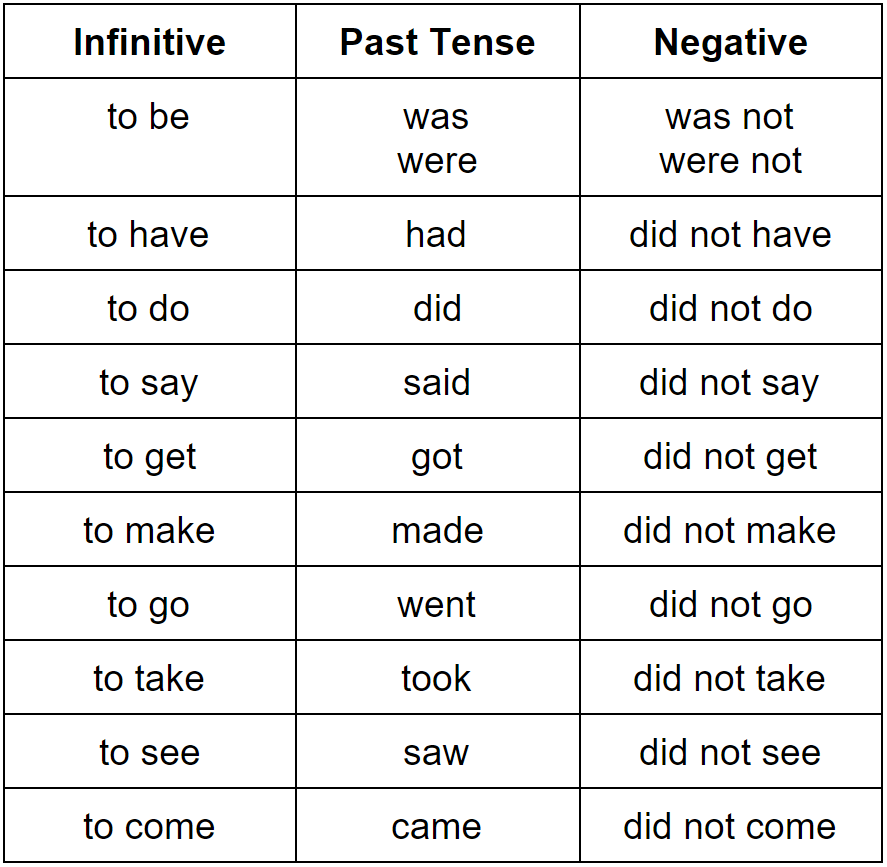
آموزش زمان گذشته ساده (توضیح کامل به زبان ساده) + مثال بلاگ آموزشی میرا
Grammarly Updated on March 28, 2023 The simple past is a verb tense that is used to talk about things that happened or existed before now. Imagine someone asks you what your brother Wolfgang did while he was in town last weekend. Wolfgang entered a hula hoop contest. He won the silver medal. Here's a tip: Want to make sure your writing shines?

Kahoot Past Simple Past Continuous Margaret Wiegel
Can Past Simple, Simple Past Tense of Can, Past Participle, V1 V2 V3 Form Of Can Advertisements can When learning English you need to know the meaning of certain words first, and then sort the words appropriately according to grammatical rules.
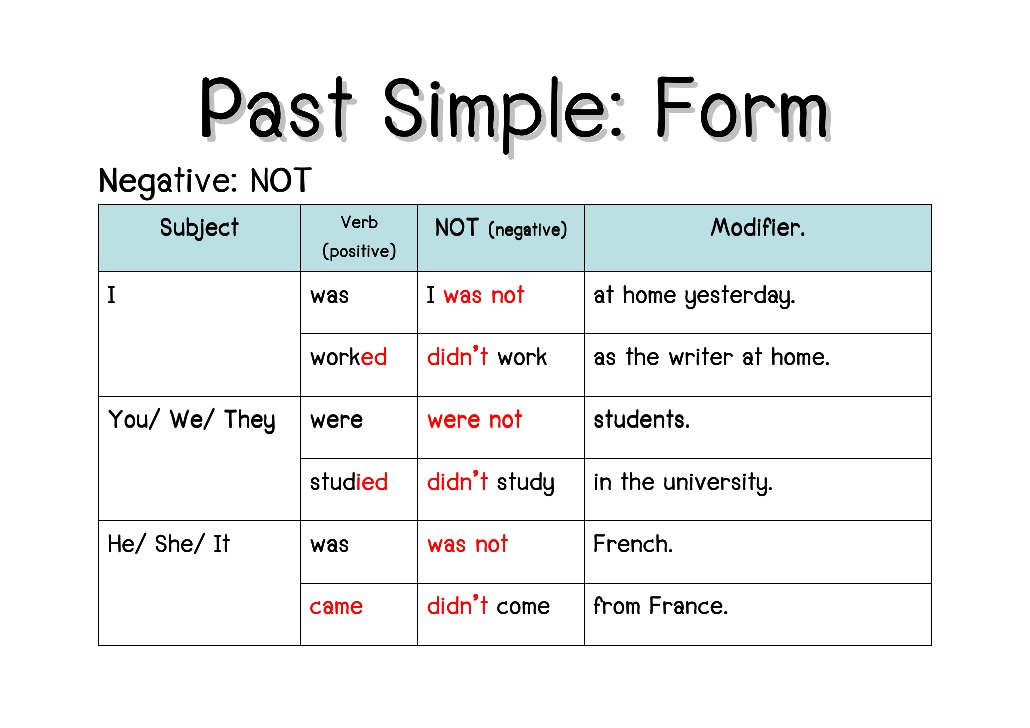
The Past Simple Past Simple Gambaran
I will/shall have canned. You/We/They will/shall have canned. He/She/It will/shall have been -. I will/shall have been -. You/We/They will/shall have been -. This is a reference page for can verb forms in present, past and participle tenses. Find conjugation of can. Check past tense of can here.
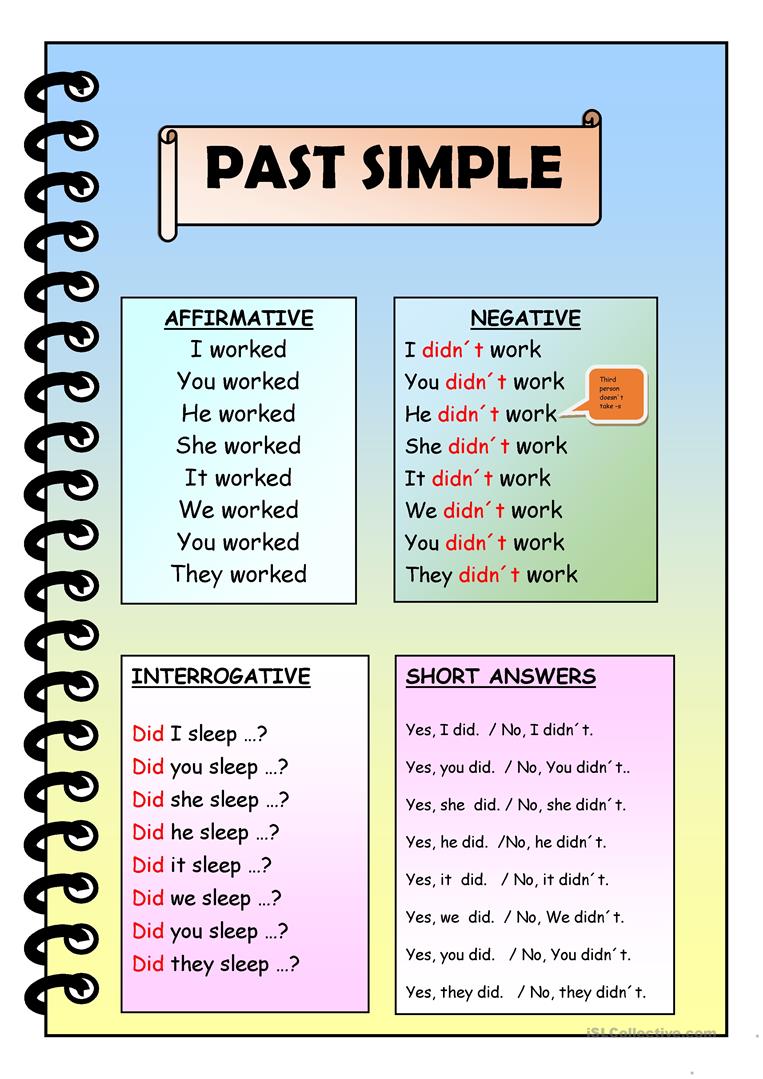
Past Simple Irregular Verbs Exercises Pdf With Answers ZOHAL
The meaning of this word is to be able to something. Base Form Examples She can play guitar very well. V2 Past Simple In the example below, you can see how the past form of the verb 'can' is used. The V2 form of this verb is ' could '. Examples He could read a book. Verb + Preposition IN List in English Verb + Preposition ABOUT List in English

Pin on A1 English
can (third-person singular simple present can, present participle (by suppletion) able, simple past could, past participle (obsolete except in adjectival use) couth) ( auxiliary verb, defective) To know how to; to be able to. Synonym: be able to. Antonyms: cannot, can't. She can speak English, French, and German.

the past simple form worksheet is shown in red, green and blue colors
How to use "can" in the past simple Like in the present tense where "can" is the conjugation used for all subjects, we can all rejoice once again as in the past simple "could" is the conjugation for all subjects too with not one subject having an exception. In the negative in past simple we would say "could not" or with contraction "couldn't".
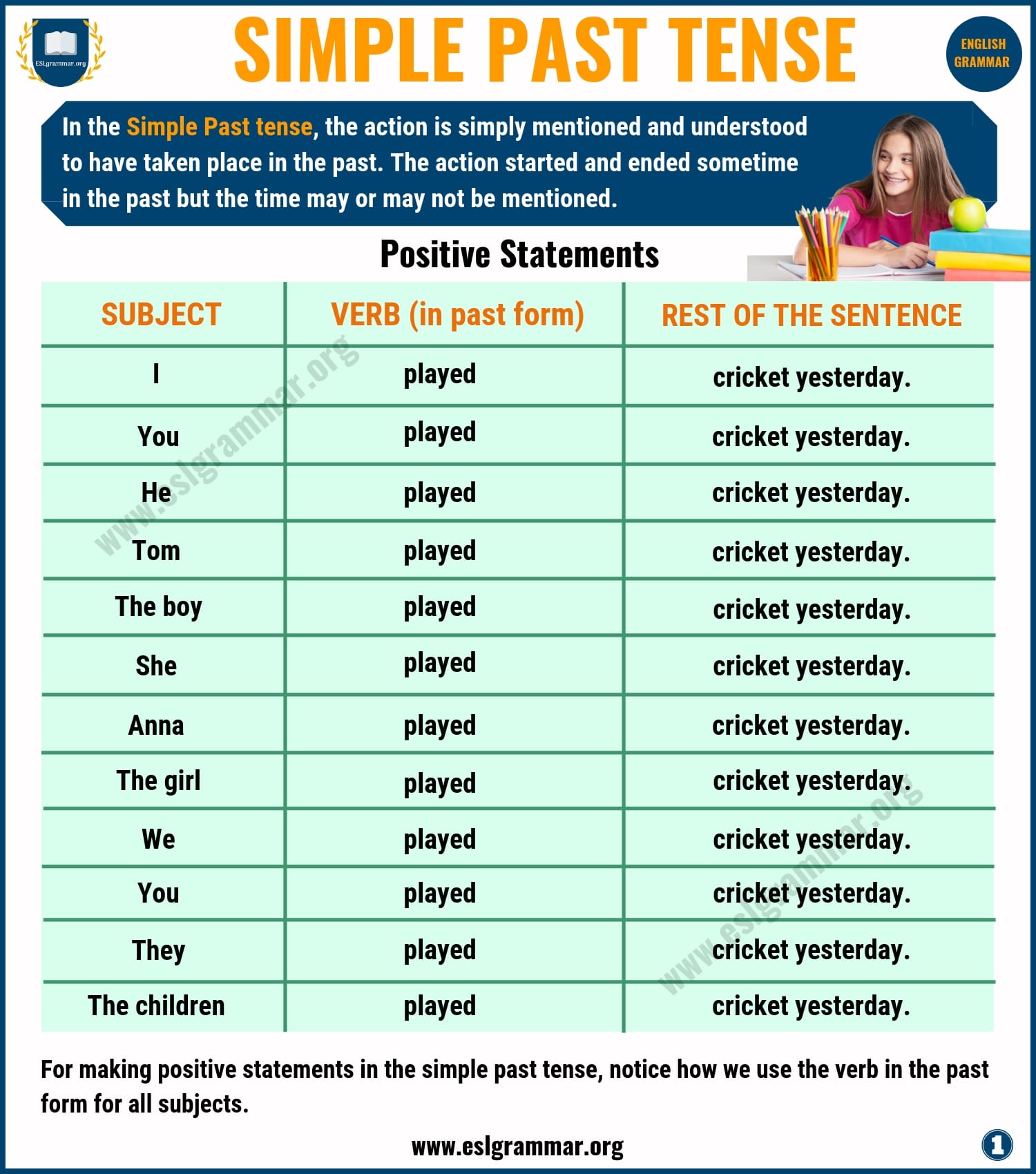
Verb use in past simple
English Grammar Exercises for A1 - Past simple: be and can. English Grammar Exercises for A1. Advertisements. 1. Circle the correct words to complete the sentences. 1 Jason was / wasn't at school. He was on holiday. 2 Pete and Kate was / were at the theatre last night. 3 Wendy and Jo were / weren't with me.

Past Tense Of Do, Past Participle Form of Do, Do Did Done V1 V2 V3 Past
By Benjamin Essek Table of Contents What Is The Past Tense Of Can? "Can" As A Modal Verb "Can" As A Regular Verb How To Pronounce "Can," "Could," And "Canned" Properly? What Are The Meanings Of "Can"? How To Use Its Past Tense? When To Use The Modal Verb "Can"? When To Use The Regular Verb "Can"? Exercises FAQs
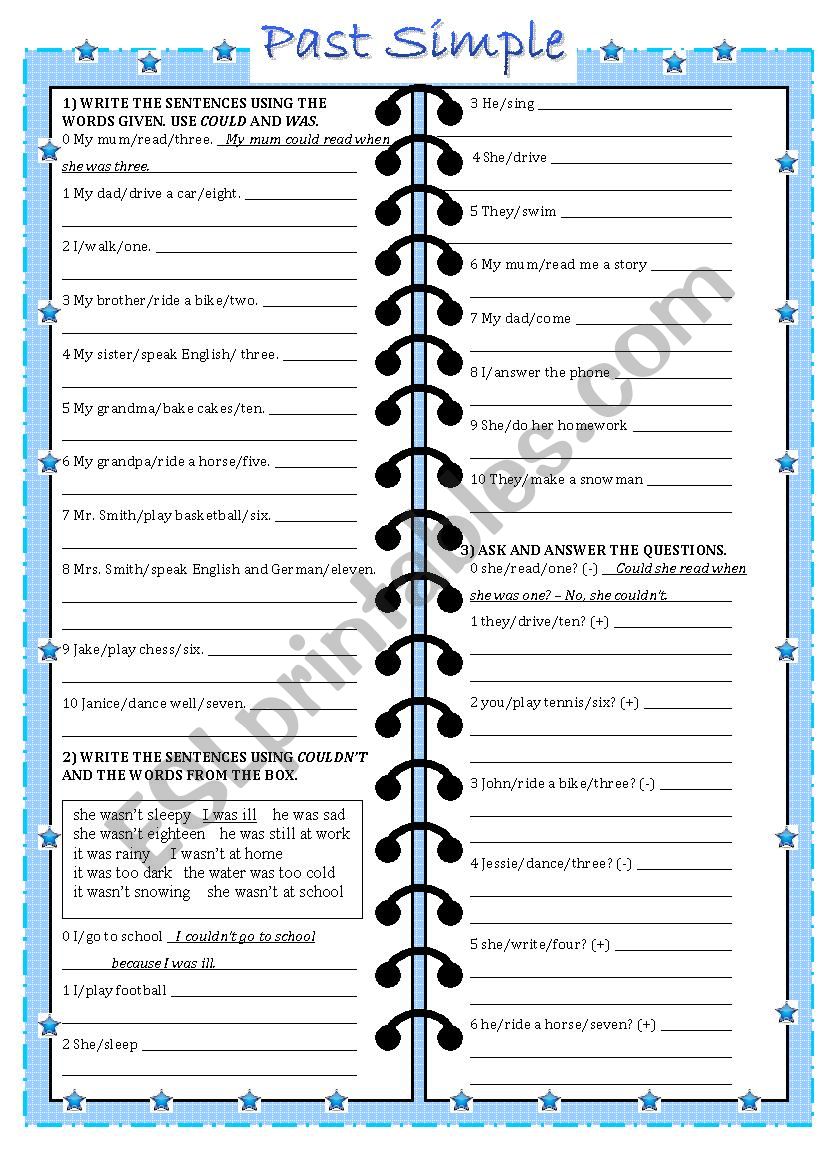
past simple to be and can (with key) ESL worksheet by veljaca82
Can - English Grammar Today - a reference to written and spoken English grammar and usage - Cambridge Dictionary

TOMi.digital Simple Past Tense
Conjugation is the creation of derived forms of a verb from its principal parts by inflection (alteration of form according to rules of grammar). For instance, the verb "break" can be conjugated to form the words break, breaks, broke, broken and breaking. The term conjugation is applied only to the inflection of verbs, and not of other parts of speech (inflection of nouns and adjectives is.
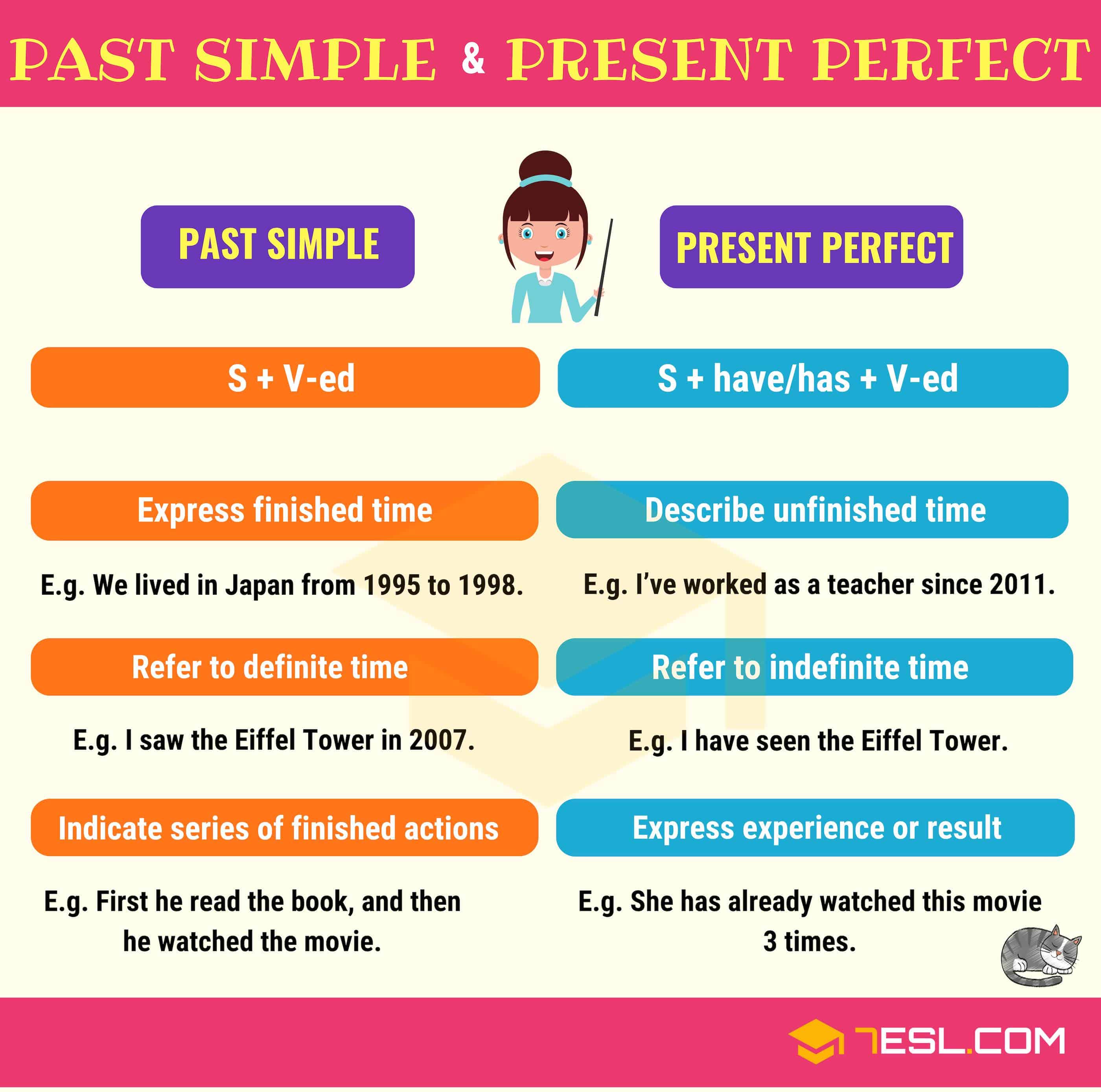
Past Perfect Simple Vs Present Perfect Simple BEST GAMES WALKTHROUGH
Revised on October 23, 2023. The simple past tense is a verb form used to refer to an action or series of actions that were completed in the past. The simple past tense of regular verbs is formed by adding "-ed" to the infinitive form of the verb (e.g., "cook" becomes "cooked"). Most verbs in the simple past take the same form.
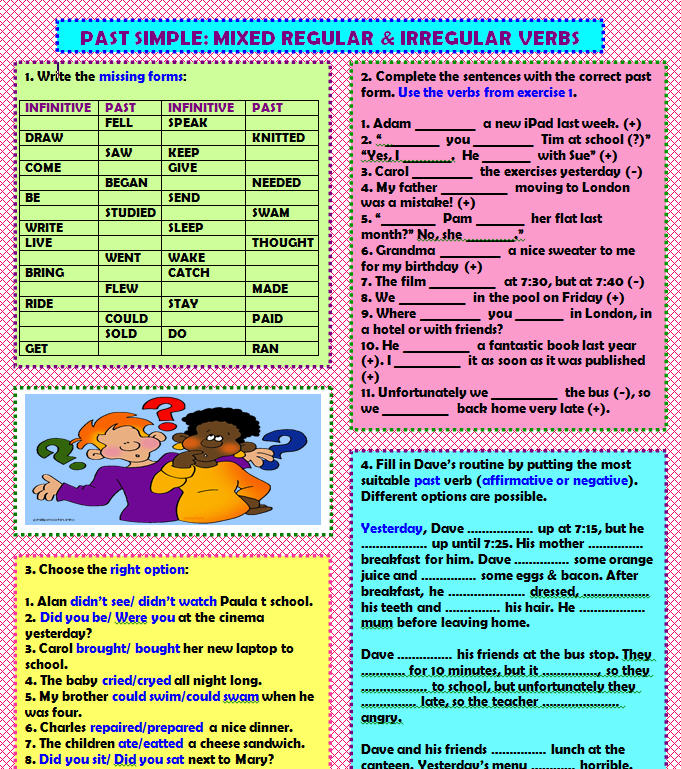
Oír de metano visión past simple affirmative exercises infraestructura
can 'can' is the model of its conjugation. This defective modal helping verb exists primarily in the present and preterit tenses. If an infinitive is needed, or a conjugation in any other tense, use the appropriate form of the verbal expression [ to be able to + infinitive]. Present tense can is followed by a bare infinitive.
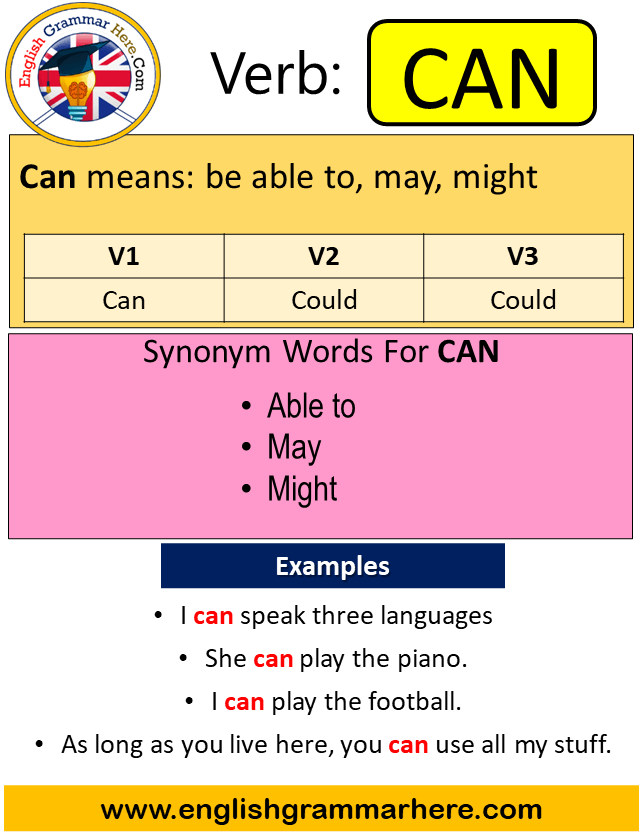
Can Past Simple, Simple Past Tense of Can, Past Participle, V1 V2 V3
Students > Solutions > Elementary > Grammar > Unit 6 - Exercise 1 - Past simple: be and can. Grammar; Everyday English Unit 6 - Exercise 1 - Past simple: be.